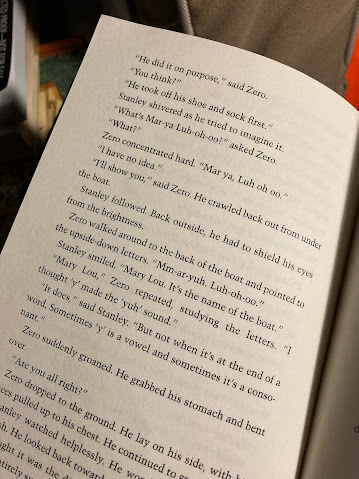Reading Journal: Part I
I was reading the illustrated version of the Harry Potter series with a student. He was utterly immersed in the world of Hogwarts and engaged in passionate debate about the books. For example, we spent at least ten minutes on conversations about:
- Why was Hagrid really expelled?
- Who really opened the Chamber of Secrets?
- Who was a better candidate for the heir of Slytherin?
Oh no, the thought hit me. I'm going off on a tangent. I'm supposed to help him focus and here I am, setting off fireworks and chasing squirrels again.
Nope. I went with it. "Language and text can be a source of creativity and joy," right (thank you, Ministry of Education!)?
We could focus later, when I got to ask him, Remind me - what's happening right now? This let me check that he could describe the action without veering off on a tangent.
But since we're on the topic of tangents (because I said so) my favourite tangent of the day was:
Essay topic
Why should / should not Harry Potter be the Head Boy?
Then it was time to take turns reading and I was supposed to start a chapter. My student had read ahead. I'm lost! Help! I feigned dismay and asked him to tell me what happened in the last chapter (checking for comprehension and recall, while showing that he could synthesise a bunch of difference incidents).
I told him that I got confused because, "I got distracted by the cool illustrations." He's not the only one who has trouble focusing sometimes. So I asked my student, what should I do to help me get back on-task? He guided me calmly, wanting to ensure that we were on the same page. I let him take the lead. I let him learn, I let him build his confidence and his executive skills by taking on the role of the teacher.But wait, but wait! I interrupted him.
Why is the toilet the safest place to hide the Polyjuice Potion?
Because nobody goes in there.
And why does nobody go in there?
He explained very patiently that the toilet is where Moaning Myrtle resides and that nobody wants to be bothered by her. It's a perfect spot for Harry, Ron and Hermione to meet in secret. He had just paraphrased another chapter. Job done.
Why does Neville say he's "almost a Squib"?
While he struggled with this question, we got there in the end. I made sure that when he was reading, I mostly let him fly. He read at such high speed that it was hard to interrupt him (although I did tell him good, good! during his turn). Mostly I interrupted myself. I paused to check that he knew what was happening, checked that he was catching the new vocabulary, learning how he responded when he didn't know the answer - because he couldn't just say, "I don't know."
We got to this part and I asked him the question: Why are his belongings a mess? That's because I wanted to know if he can draw inferences from the text, if he could interpret what is going on:
The contents of Harry's trunk had been thrown everywhere. His cloak lay ripped on the floor. The bedclothes had been pulled off his four-poster and the drawer had been pulled out of his bedside cabinet, the contents strewn over the mattress.
If he could tell me, "someone has been through Harry's belongings," I reason, that meant we can also talk about a change in the tone of the book. Things had taken a turn for the sinister. Nobody likes to be burgled.I took notes for about half of our sessions. It's too intense - and slows us down - if I tried to do it for the whole hour but I still had a rich body of material to work from at the end. I would then tidy it up, format it nicely into bullet points and highlight the new vocabulary.
But the high point for me was when he once exclaimed, "we could just discuss the book instead of reading it!"
And... my work is done.


Comments
Post a Comment